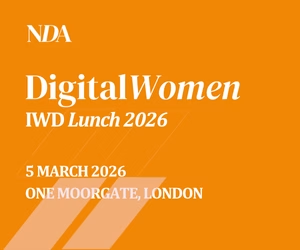At New Digital Age, we’ve started a new series, Reasons To Be Cheerful, focussing on the positives for our industry that coronavirus may actually have.
We spoke to Paul Frampton, President, International, Control v Exposed, to discover what he remains positive about.
What positive impacts have you seen on how your business operates?
I joined Control V. Exposed as President of Europe when the company launched in the UK and Europe last September. As a new breed of marketing services provider, we employed a completely remote workforce from day one, so feel very lucky to be set up for working from home success, knowing there would be little to no impact on our infrastructure, training, global IT support and, most importantly, client expectation.
Being a remote business means the majority of our staff sought us out because they wanted flexible working, so the effect on work-related confidence and mental wellbeing is likely to be reduced compared to workers who have suddenly had it thrust upon them. During lockdown, it has also meant that we have been able to more agile than others and focus on transformational strategies, rather than being hindered by re-setting BAU expectations.
What have you been most heartened about in how your staff, partners, customers or clients have reacted to the new normal?
It’s been a pleasure to see so many clients and partners really look after their staff during these difficult times. Many businesses profess to be ‘people-first’ but it’s easy to wonder how much is just lip service.
Even the UK’s Chancellor Rishi Sunak stepped up to say that the government will be judged on its capacity for compassion now – the same is true of business leaders everywhere.
Businesses need to keep operating, so naturally, tasks still need to be completed. But businesses must be, above all else, human – both empathetic and sympathetic to the situation that their people are in. Be flexible, be compassionate. Teams need to be told that it is OK to take breaks to look after their children – indeed, it’s acceptable that their kids may appear on a video call – that it is important that they get fresh air and exercise.
Whilst we must practice physical distancing, it’s critical that we stay socially together and find ways to enable social connections in the real world at key intervals, within the guidelines. It has been heart-warming to see how many within our industry agree.
What technologies have you been most impressed with during this new situation?
Zoom is definitely winning as the video conferencing tool of choice (despite the initial security issues). Combining Zoom with Microsoft Teams or Slack, WhatsApp and email feels like a good combination of tools to allow employees to remain ‘plugged in’ and communicating when at their home desk, taking a walk, supervising kids or caring for elderly parents.
These technologies all help businesses adapt to the juggling that is part and parcel of normal life now.
The only risk is fragmented conversations across platforms. Managers and leaders must work around this by being intentional about communication, and countering this with regular team-wide check-ins. Just sending a message via Teams or email and waiting for a response has never been enough but without real-world signals to judge it can be highly ineffective so building counter strategies to check in and track progress is key.
If your team does not use an online workflow tool, now would be a great time to start. These offer visibility and clarity to all. There are many options, but my favourites are Monday and Basecamp. My team and I walk through projects, actions and priorities daily using the Monday tool and use it to keep track of who is doing what.
We have also created open conversation groups on Teams to encourage our people to share ideas on how to cope during these challenging times – there are groups discussing how to juggle work and kids, tips for keeping kids entertained and homeschooling, how to get the groceries you need, how to stay sane when stuck inside, etc. People can dip in and out when it suits them, the camaraderie is fantastic.
What, if any, positive long-term impact on the digital industry will coronavirus have?
Office life will never be quite the same, despite many stalwarts claiming that creativity is impossible to re-create in a virtual world. At Control V. Exposed we don’t talk about ‘work life balance’ as we felt that term had negative connotations for most of us. After all, balance is hardly ever really possible and holding it up as an ideal seems like sentencing people to fall short.
But putting semantics or terminology to one side, ‘work life integration’ will remain far more important – and flexible – going forward. The genie is out of the bottle: if you hire, train, support and trust good people they truly can work from anywhere. I don’t think we’ll ever go back to the presenteeism model, why would we?
What positive impacts on long term consumer behaviour shifts will it have?
Long-term consumer behaviour shifts are harder to predict. What is undeniable is that the last three months have further accelerated the shift towards digital and mobile for consumption and commerce.
Zooming out further, the dream would be that, worldwide, medical research would be more valued, resistance to environmental issues would fall, people would value and protect quality journalism and a free press more than ever, and politicians would be more united across geo-political lines. However, old habits are hard to break!
So, if people simply value their families and friends more and and look after their their mental and physical health more than ever first, that would be enough for me. And I do believe people will remember and support the brands and businesses that showed compassion and innovation during these difficult times. Going back to the words of Rishu Sunak, organisations everywhere will be “judged on their capacity for compassion.”










